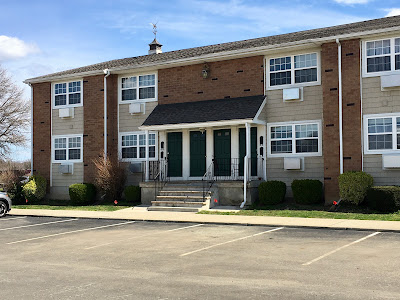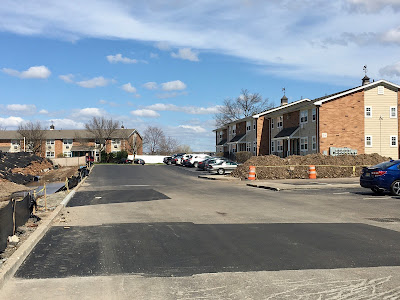 |
DIRTY DOZEN: I buy organic strawberries at Whole Foods Market in Paramus because conventionally grown strawberries top the Dirty Dozen, 12 crops that farmers typically use the most pesticides on, according to the Environmental Working Group. And they are most likely to contain pesticide residue even after they are washed, AARP says.
|
 |
CHEAPER THAN AT COSTCO: I also buy Organic Carrots at Whole Foods Market because they are cheaper by the pound at the Paramus supermarket than they are at Costco Wholesale in Teterboro.
|
AARP article distills new book
on organic food, eating local
By VICTOR E. SASSON
EDITOR
HACKENSACK, N.J. -- With the U.S. death toll from the Covid-19 virus passing 50,000, many of us are spending more time at home preparing our own meals and taking another look at what we eat.
Many people in quarantine are stocking up and binging on cookies, cakes and other sweets, according to news reports.
But in my home, we are pretty much staying the course, trying to buy as many organics as possible and eating only wild-caught seafood, and meat and poultry free of harmful antibiotics.
Now, AARP, the nonprofit interest group for older Americans, is exploring whether the health benefits of eating organic and locally grown food are worth the cost.
The short answer is yes.
Eating organic
"Why Eating Organic Matters" is the main headline over an article in the March 2020 issue of AARP Bulletin, a glossy tabloid, adapted from a book by Mark Bittman and Dr. David L. Katz.
The book, "How to Eat: All Your Food and Diet Questions Answered," cites a recent study in France, where researchers found "a significant difference in cancer incidence between those who eat organic routinely versus those who don't," AARP reports.
"Those people who ate organic had the least cancer, as you'd expect," according to the article.
 |
ORGANIC V. NON-ORGANIC: Organic apples can have no more than 5% of the pesticides in conventional produce, but 80 percent of non-organic apples are treated with diphenylamine, which is banned by the European Union as a potential carcinogen, AARP says.
|
If you can't afford organic?
"A non-organic apple is better than no apple, and better than most other choices," the AARP article reports.
"So, yes, get the non-organic apples and wash them well [to reduce pesticide residue]. It's almost safe to say, 'Never pass up an apple.'"
As for eating local, AARP says, "No one but a fanatic could eat only local food, but concentrating on these attributes would mean you are eating better, more ethically, more sustainably."
"If you know your produce is being grown on a local farm where chemicals are not being used, you know that you are avoiding those chemicals," AARP reports.
Grass-fed animals
"When animals graze on grass, as opposed to grains, they keep the soil healthy and produce better meat."
"And pasture-raised animals may have lower risks of industrial food-borne scourges, like E. coli 0157:H7, a strain that can cause severe infection and even kidney failure," the AARP article says.
The article concludes:
"It's ... important to have a plant-dominant diet, along with balance and variety."
Costco Wholesale carries 100% grass-fed burgers (beef or lamb), Polish sausage and sirloin steak.
AARP headlines
Thanks to AARP Bulletin for the headline on this post, "Don't Panic, Eat Organic."
But I disagree with a subheadline that says "organic and locally grown foods are all the rage."
The organic movement began decades ago, and residents of New Jersey (and many other states) have always prized local food, including Jersey tomatoes, corn, wild-caught fish and other seafood.
I'd also like to point out the Your Health article on why eating organic matters contrasts with others AARP has published in recent years on food of dubious quality:
 |
MORE AFFORDABLE: On Thursday, I shopped for organics at Whole Foods Market in Paramus during the senior hour -- 8 a.m. to 9 a.m. Above, as an Amazon Prime member, this woman, like me, gets special deals and an extra 10% off on sale items. I also get 5% cash back by using the Amazon Prime credit card to pay for my purchases.
|
 |
LINING UP TO SHOP: At 9 a.m., a long line of shoppers under 60 year old began to enter the natural and organic food supermarket.
|
 |
TURNING A CORNER: The line wrapped around the corner of the building at the Bergen Town Center.
|

































